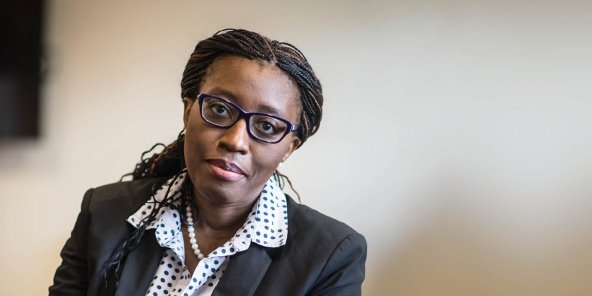Sudanese Prime Minister Abdalla Hamdok and Economic Commission for Africa (ECA) Executive Secretary Vera Songwe on Friday launched a new publication proposing actions to be taken to stem financial flow leaks illegal before they leave the African coast. The report notes that once these resources leave Africa, recovering them involves a complicated process requiring capacities often scarce in African countries. In addition, the speed and ease of losses beyond national borders easily cross the lines of defense of Africa’s national financial security. This trend, says the report, must be stopped.
The report, titled “The Institutional Architecture to Combat Illicit Financial Flows from Africa” was launched at a high-level roundtable hosted by UN Deputy Secretary-General Amina Mohammed on the theme, “Extractive industries as a driver of sustainable development: The case of Africa”.
The analysis draws on the efforts of the African Union, the Economic Commission for Africa, academia and civil society institutions to stem the illicit outflows of $ 50 billion per year, a conservative estimate. raised in the 2015 report of the High Level Panel on IFFs, chaired by President Thabo Mbeki. The loss, the report notes, accounts for three quarters of the health financing gap estimated at $ 66 billion per year for Africa to make significant progress on SDG 3, on good health and well-being. .
“Sudan welcomes the report and calls for collective action to promote good governance in our extractive sector. The sector is important and can greatly contribute to the mobilization of resources by countries to finance sustainable development on our continent, ”Prime Minister Hamdok said.
“Sudan is in a new phase of reorganization and the challenges of the extractive sector are not lost on the Transitional Government. I invite governments to consider the recommendations of this report, “he adds.
For her part, Ms. Songwe said that ECA was ready to continue working with member states to formulate policy recommendations that could help reduce Illicit Financial Flows in all their forms from the continent.
Ms. Mohammed says Africa’s extractive industries, if properly harnessed, can be a way to achieve the SDGs and the African Union’s Agenda 2063, the Africa We Want.
“The continent must ask itself – in a post COVID-19 world, how can extractive industries create clean and gender sensitive jobs; how can countries lead a green energy transition and use extractive industries to propel us towards a low emissions and resilient future… and enable good governance and benefit local communities, ”she emphasizes.
The high-level online roundtable was convened to discuss current and emerging trends in the extractive industries sector with a focus on Africa to determine how extractive industries can be a catalyst for sustainable development in line with the Goals. of sustainable development and the Paris Agreement on climate change.
The event attracted high-level participants, including the President of the African Union, Mr. Moussa Faki, ministers, experts from the private sector, academia and think tanks, representatives and organizations from society. civil.
Participants discussed emerging trends in the context of the COVID-19 pandemic and implications for the future of the industry; the fight against Illicit Financial Flows and how to further improve tax systems, governance and transparency in the sector; and the actions needed to align the extractive industries with the Sustainable Development Goals, in particular on gender and climate change.



